SUDBURY - If you want to understand U.S. President Donald Trump, then you have to understand U.S. President William McKinley, a Laurentian University economics professor said during a panel discussion on tariffs last week.
At 1 p.m. on March 19, a few faculty and students gathered in the executive learning center of the Fraser building at Laurentian University to listen to an economics seminar surrounding President Donald Trump’s tariffs. The panel featured three professors and two experts who shared their thoughts regarding the U.S. president threatening Canada’s economy and sovereignty.
The panel included Laurentian University economics professors Dr. Louis-Philippe Rochon and Dr. Sadequl Islam, as well as Dr. Hassan Bougrine, a professor in the school of social sciences. They were joined by Marty Warren, national director of the United Steelworkers union (USW) and Emily Trottier, business development officer for the City of Greater Sudbury.
So what does U.S. President Donald Trump's current fascination with tariffs have to do with William McKinley, the 25th president of the United States? It turns out McKinley was known as a big fan of tariffs and was also known for "having annexed Hawaii, for having taken Cuba from Spain by force, for having conquered Guam, the Philippines,” said Rochon.
Rochon went on to talk about past difficulties between Canada and the U.S. under McKinley, who he said also had an idea of weakening Canada economically in order to annex it.
“Two of the major components of Trump’s current rhetoric were already firmly established during McKinley’s reign,” said Rochon.
Rochon explained how in his point of view, Trump could be threatening tariffs and Canada to gain power, either by then putting more money into Republican states vs Democratic ones or using the fentanyl problem to declare a national emergency.
“I think this is a fascinating parallel with history, and I think we need to understand more of what Trump is trying to do if we take a patriotic view,” said Rochon.
While Rochon was focused on history and understanding Trump, Warren of the Steelworkers union was more focused on the present and fighting back against threats made by the president. Warren said Canada needs to be more aggressive and take swift, tough action against the tariffs rather than the more slow approach of trying to bargain.
He began by repeating the words of USW International President David McCall, who said “tariffs are used for cheaters, and that is not Canada.”
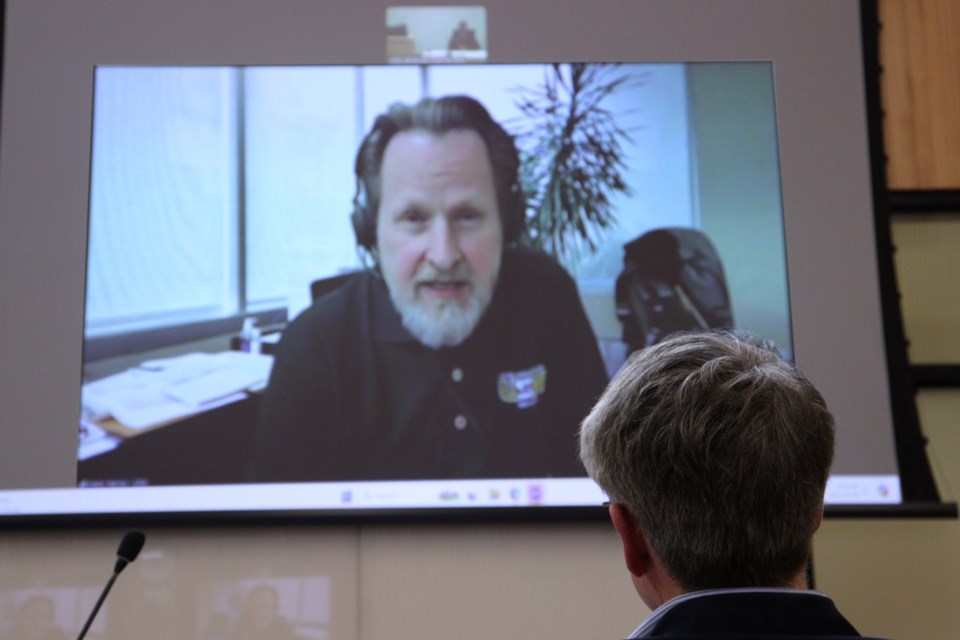
Warren went on to further echo Rochon’s argument about the tariffs saying “when Trump sent us down the rabbit hole of border security, it was nothing more than a smoke screen to try and attack our economy in an effort to create this annex in Canada thing going on.”
His anger towards Trump's efforts at creating a trade war with Canada is based on the fact that he knows Canada to be a “good trading partner.” Despite the fact the U.S. population is nearly 10 times that of Canada’s, Canada’s trade is “basically an equal balance sheet.”
“On the oil, let's be clear, [Trump] has tens of thousands of jobs in the U.S., and then they refine our oil and make billions off it by selling it overseas,” Warren said. “So, am I upset? Yeah, I'm upset about the chaos that Trump has created by his trade war against Canada, which is in my view unethical, quite frankly.”
Warren said he agrees with Ontario Premier Doug Ford’s ideas to hit Trump back where it hurts, adding he thinks the country should have immediately put an export tax on things such as potash and oil as aggressive retaliation.
While strong and quick action is Warren’s preferred approach, he acknowledges that it won't be easy and it will be workers and consumers who are going to suffer.
He warns Canadian workers to look out for foreign steel getting “dumped in our market” which can cause further problems for our domestic industries. Near the end of his discussion, Warren said he thinks the government also has a responsibility to step in and help workers and businesses who will be affected.
“I think it has to be a hard push quicker than a slope or we’ll slowly bleed to death in Canada,” said Warren.
While Warren recommends a strong offense to counter U.S. trade aggression, Trottier, a business development officer with the City of Greater Sudbury, spoke more about how the tariffs would impact the local economy. Trottier said a diversified trade market is the key to ensuring one country doesn't have the power to cripple the economy.
Northern Ontario has long been a hub for natural resources, extraction, advanced manufacturing and high-chain services, said Trottier. Sudbury ranked 41st in a recent Canadian Chamber of Commerce U.S. Tariff Exposure Index, which indicates the amount of impact Trump’s tariffs will have on a city based on U.S. exports.
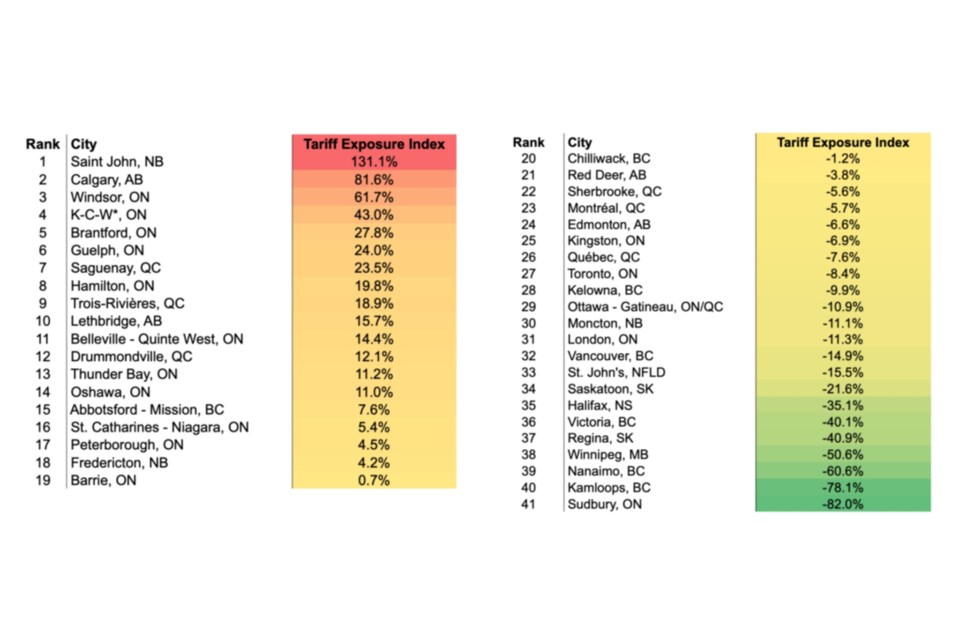
While the low ranking indicates Sudbury is not as vulnerable to U.S. tariffs, the city is “not immune to the effects of global trade policies,” said Trottier.
Tariffs on materials such as steel and aluminum will affect Sudbury’s manufacturing sectors, supply service companies and mining. However, the region has been working on strengthening global trade beyond U.S. borders, which Trottier said has contributed to the city’s resilience.
She said that despite “the amount of exports that are happening from Sudbury internationally” it's “the uncertainty and the constant chaos” coming from Trump’s threats and tariffs that is having a large local impact. Investment decisions are being delayed and impending layoffs are causing stress on families.
Last month, Trottier was at the Sudbury booth at PDAC 2025 and was impressed by the amount of people coming by, looking specifically for Sudbury.
“We’ve got a great reputation internationally for being a destination for companies,” she said.
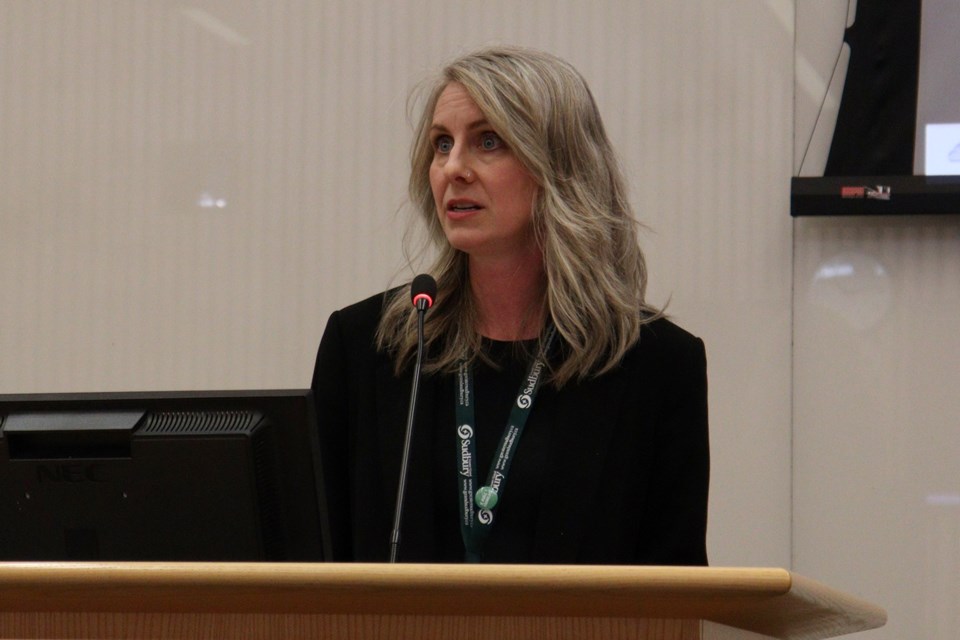
Trottier recommended that if consumers and small businesses want to push back on tariffs, they can "buy local" and "buy Canadian" to support the country’s economy. She also said businesses are encouraged to "not put all [their] eggs in one basket” and to apply a broad lens when it comes to diversifying markets.
While expanding markets is a good way to lessen the effects of Trump’s tariffs, the issue has also renewed the debate over free trade versus regulated trade. Bougrine said people shouldn't be so quick to assume free trade is a good thing, or even free.
Bougrine said that government regulated trade (interventionist policies) are a form of protectionism and the reason that free trade agreements fail is because they are not beneficial to all trading partners. He used the North American Free Trade Agreement (NAFTA) as an example on how free trade agreements can penalize most economies “particularly the weaker economies,” such as Mexico.
Bougrine described NAFTA as a typical example of “colonial-type” trade patterns that have prevailed for a long time. “These unequal trades have led to growth inequalities between so-called rich, advanced, industrialized countries and the so-called poor countries,” said Bougrine.
He attributed this imbalance to the goal of trying to achieve a trade surplus. If one country wants more than the other, there will be an imbalance and one country will be in a deficit.
“If everyone is fighting to have a surplus, that's not possible,” he said.
Bougrine said the only solution is co-operative, balanced trade. The idea would be to create a sustainable trade system that does not impose excessive measures such as tariffs, or damages weaker economies, such as what happened to Mexico.
“In the end, perhaps the goal should be not to achieve surpluses, but to eliminate them,” said Bougrine. “No surpluses, no deficits, and we will all be fine.”
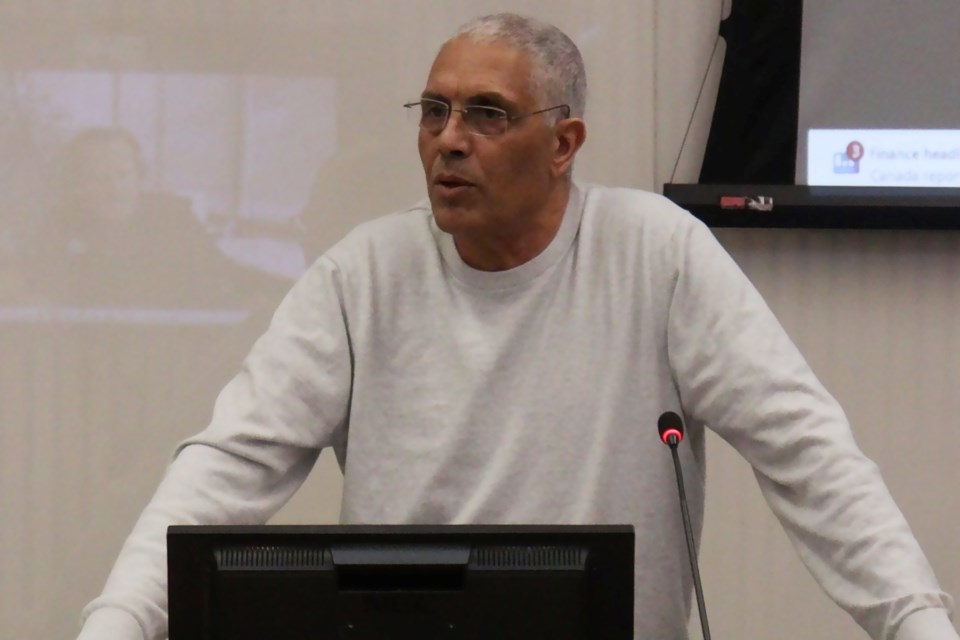
Unbalanced trade wasn't the only criticism brought up during the panel. In his remarks, economics professor Islam highlighted what he termed the “fear tactics” Trump uses. He also pushed the message that Canada needs to diversify its markets for the good of the economy.
Islam also called out what he called the “misinformation” used by Trump to justify the tariffs, such as the argument the U.S. has a massive trade deficit and is subsidizing Canada and other countries to the tune of more than $100 billion, which “is not true,” Islam said.
The U.S. imported $412.7 billion and exported $349 billion to Canada in 2024, leaving the U.S in a $63 deficit, according to Islam and the U.S. Census Bureau.
Islam said 76 per cent of Canadian exports go to the U.S and only 49 per cent of Canada’s imports come from the U.S.
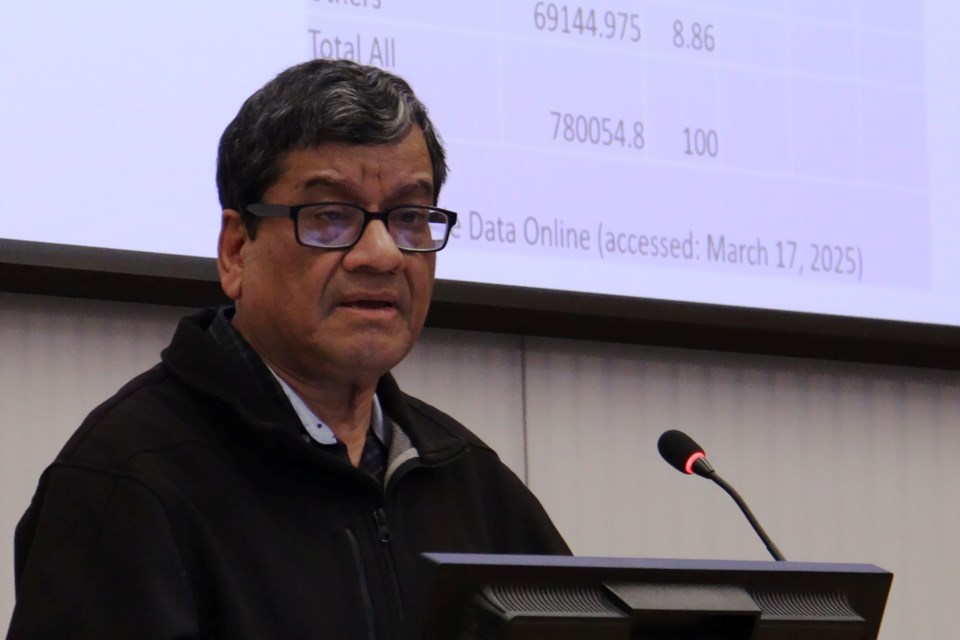
Islam's quick solution to Canada's problem? A targeted approach to retaliatory policy. He suggests tariffs on products produced in pro-Trump states, co-ordinating countermeasures with other countries and pursuing negotiations with other countries (such as East Asian countries and the European Union). Canada should also resist the American pressure to impose tariffs against China and resist imposing tariffs on intermediate imports which are used in the production of products in Canada.
“I think this is the time Canada should wake up,” said Islam. “We can find markets in other countries. It’s not easy, but it's not impossible.”
Kaitlyn Lemay is an Algonquin College journalism student on a placement at Sudbury.com.
